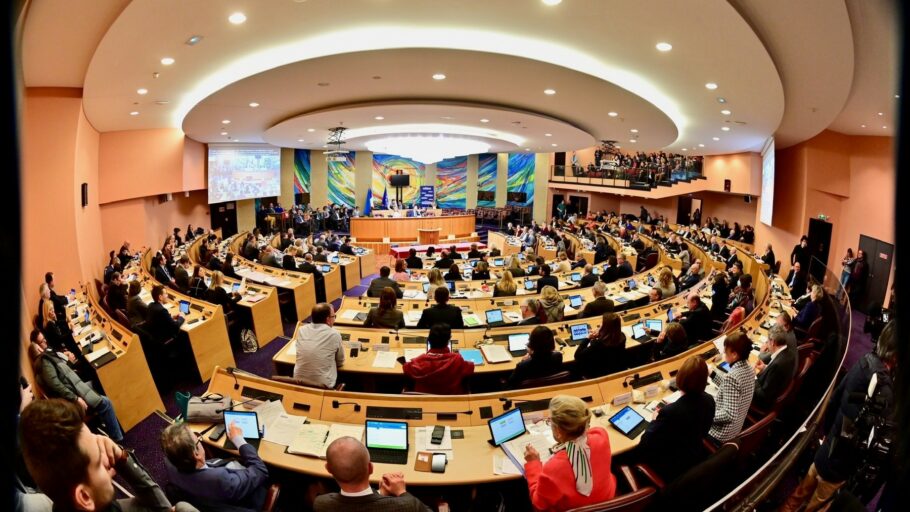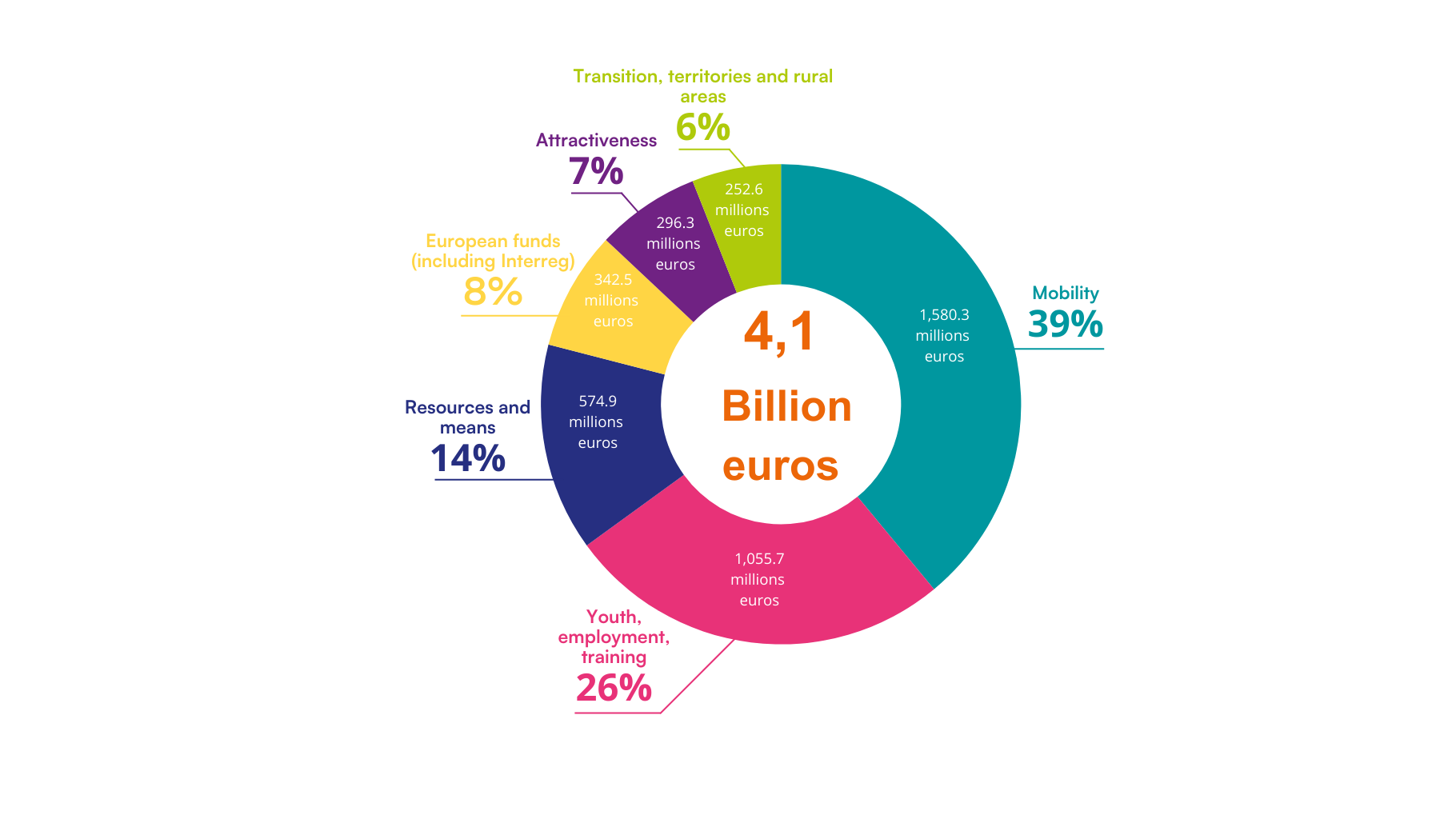Sommaire
The Budget
In the face of an unprecedented budgetary context, marked by the absence of a finance bill and a drastic reduction in operating resources imposed by the state (-135 million euros for the Grand Est Region), the 2025 Primary Budget of the Region stands as an act of resilience and responsibility.
In this climate of uncertainty, the Grand Est Region has chosen to drastically reduce its operating expenses while maintaining one of the highest levels of investment in its history. With an overall budget of 4.1 billion euros, including 1.6 billion euros allocated to investments, it continues its ambition to improve the daily lives of its residents while supporting major economic, social, and environmental transitions.
Maintaining Investment to Improve the Daily Lives of Residents
In this context, the Region is betting on the future and prioritizing the quality of its public policies. The goal is to maintain efforts to support the residents of Grand Est in their daily lives and improve their living conditions through four priorities:
1. The Rural Pact: Revitalizing Rural Areas
Through the Rural Pact, the Region aims to meet the aspirations of residents in rural municipalities of Grand Est and support these areas in becoming attractive and dynamic places:
- Support for local businesses through assistance programs and targeted support, including the “rural boost.”
- Improving access to public services and healthcare: deployment of mobile medical vehicles for the screening of diseases (e.g., breast cancer) and the experimentation of “béguinages” to keep elderly people in their living environment.
- Preservation of the rural environment with actions such as the Hedge Plan, soil depaving, and the “My Village, a Space for Biodiversity” initiative.
- Development of accessible cultural and sports infrastructures in rural areas to encourage social cohesion and togetherness.
2. Everyday Mobility: Simplifying and Decarbonizing Travel
The Region is allocating 1.6 billion euros to mobility, including 512 million euros for investments. Key actions include:
- Acquisition of 30 cross-border Régiolis train units and the modernization of railway lines, particularly small rural lines.
- Development of multimodal transport with investments in cycling infrastructure (Bike Plan, cycle routes, support for the purchase of specific bicycles).
- Improving the digital offering with the fluo.grandest.fr platform, which will allow the purchase of transport tickets and the reservation of shared bikes.
- Support for maintenance centers (Montigny-lès-Metz, Culmont-Chalindrey, Strasbourg).
- Management and modernization of the 525 km of national roads transferred to the Region starting in 2025, with targeted work on safety and biodiversity (see specific press release later).
3. The Future of Young People: Investing in Education, Training, and Equal Opportunities
A budget of 1 billion euros, including 300 million euros for investments, is dedicated to the education and training of young people, with the following objectives:
- Modernization of high schools to make them eco-responsible and adapted to digital and environmental challenges.
- A plan to depave high school yards, aiming to transform 100 schoolyards by 2030.
- Development of personalized training programs for vulnerable groups (RSA recipients, unqualified youth) and the integration of skills related to artificial intelligence.
- Ambitious educational projects such as the Villa Médicis program in Rome or study trips to the Shoah Memorial to train informed citizens.
- Strengthening of school and university sports with the “My Campus by Bike” program and the renovation of sports facilities.
4. Improving the Quality of Life: Health, Environment, and Well-being of Residents
The daily lives of residents are at the heart of the Grand Est Region’s priorities, which is investing to improve their quality of life through concrete initiatives:
- Health: Development of multidisciplinary health centers, support for telemedicine, and deployment of vehicles dedicated to women’s health.
- Environment: Investments in energy renovation of housing, support for renewable energy via the Grand Est Énergie Mixed Economy Company (SEM), and projects like photovoltaic carports.
- Preservation of Natural Resources: Implementation of the regional water roadmap with rainwater harvesting programs and flood management.
- Cultural Development: Strengthened cultural dissemination plan in rural areas and support for eco-responsible tourism projects like gentle itineraries.
Supporting What Defines the Identity of Grand Est
In 2025, the Region is increasing its investments in sectors that fully define its identity, focusing its actions on agriculture and forests, with support for bioeconomy, adaptation to climate change, and strengthening local supply chains. Industry also receives special attention with the acceleration of industrial decarbonization and support for local businesses in their ecological and digital transformation. Finally, cross-border cooperation is being strengthened through privileged relationships, particularly with the German Länder, and the development of European projects, thereby consolidating the position of Grand Est as a key region in Europe.
Unprecedented Effort to Reduce Operating Expenses
To address budgetary constraints, the Region is adopting rigorous management practices and reducing its operating expenses by 5%, particularly through optimization measures such as limiting staff travel, streamlining administrative expenses, and modernizing the energy efficiency of its buildings.
This ambitious budget, despite a reduced budgetary framework, illustrates the Grand Est Region’s ability to combine rigor, ambition, and commitment in serving its residents and territories.


